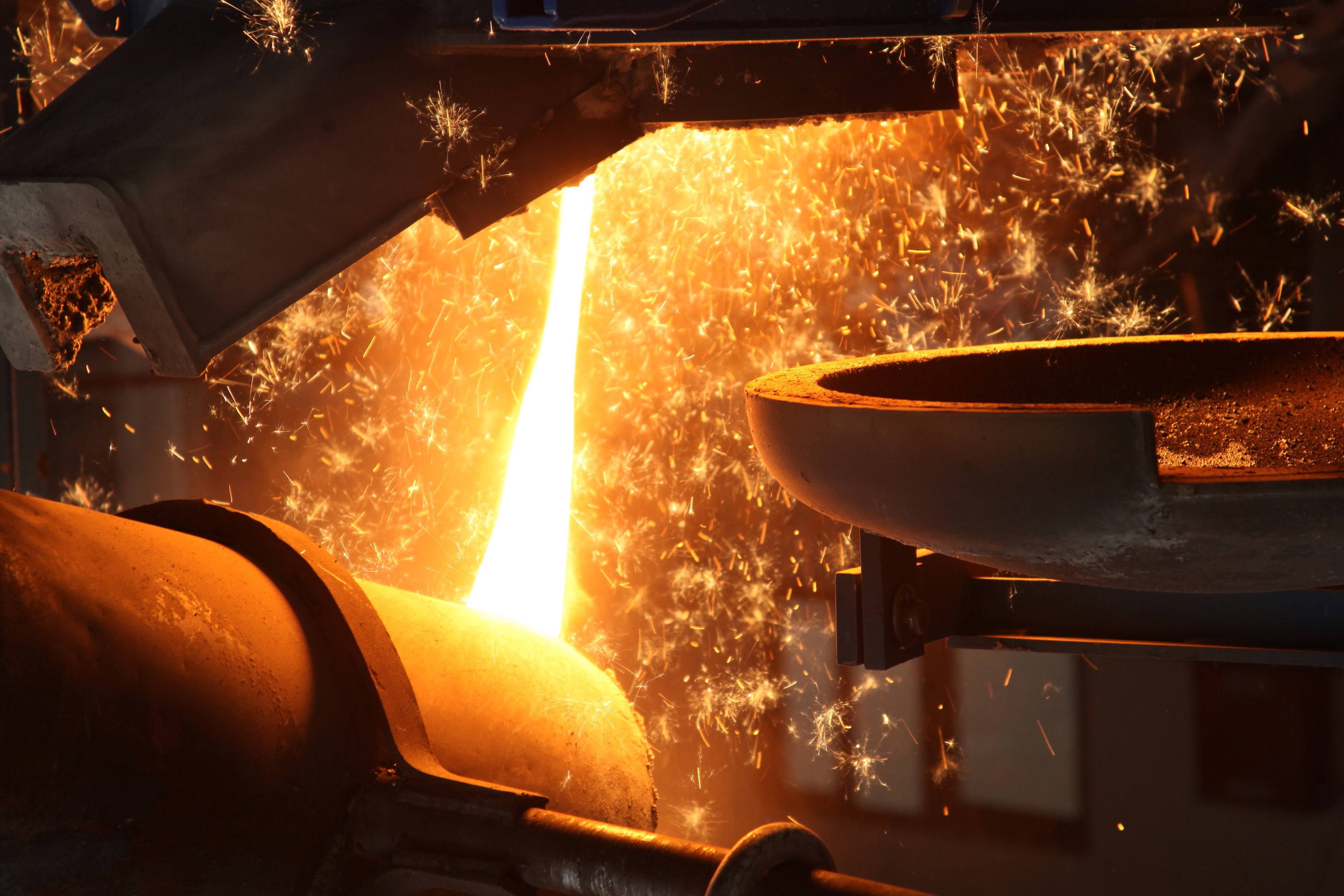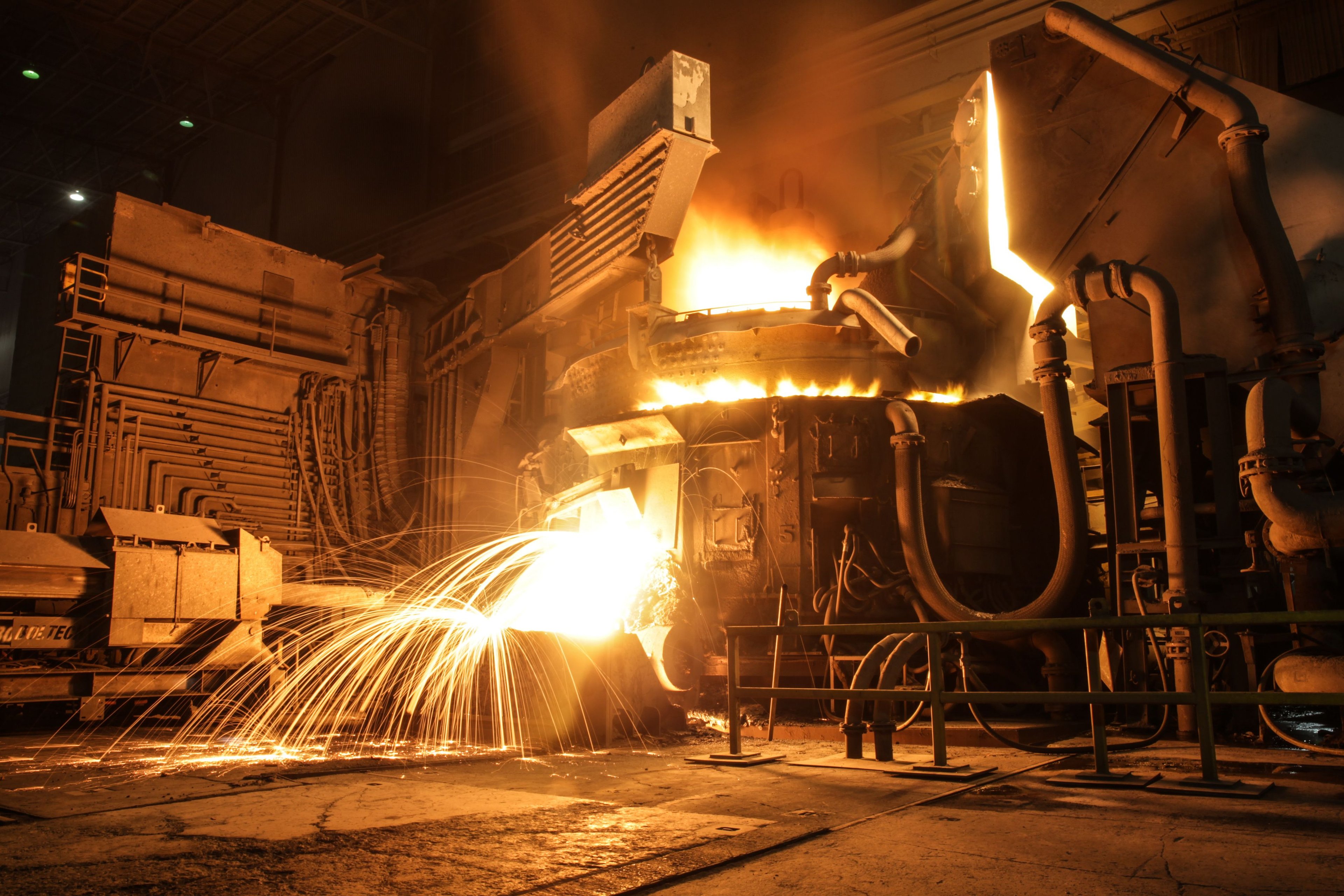Shares of U.S. steel giant Nucor (NUE +2.12%) are down about 25% so far in 2020 and roughly 40% from their 2018 highs. But they are also up 30% or so from their March 2020 lows. Is the stock still in buying territory, or has the opportunity to invest passed? Here's a quick look at some key facts to help you decide.
1. A great company in a cyclical industry
Nucor is the largest and most diversified steel maker in the United States. It uses highly flexible electric arc minimills, which, to simplify things, make it easier to adjust to industry-wide supply and demand dynamics than the older blast furnace technology that some key peers use. In addition, the company has a unique pay structure that incorporates a profit-sharing component. In good times it tends to pay higher-than-average wages, in bad times employees feel the pinch along with Nucor -- giving it a break on costs right when it most needs one.

Image source: Getty Images
All of these things work together to create a company that tends to have industry-leading profit margins in both good markets and bad ones. It is very likely one of the best-run steel companies in the world. The market knows this, of course, but it is an incredibly important factor to remember when considering an investment since it's often worth paying up for quality.
2. Ups and downs are the norm
Even the best-run company, however, can't escape the basic facts of the industry it serves. In this case, steel is highly cyclical. When the economy is running well, steel is generally in high demand as companies invest in the future and sell more products. In a soft patch, however, companies and consumers both pull back and steel sales weaken. Nucor's stock is going to track along with those ups and downs.
There are two key takeaways from this. First, if you own Nucor you need to be prepared to weather these inherent cycles. Second, if you are looking to buy Nucor, you should probably wait for an economic downturn. On that score, the United States fell into a recession in February, which helps to explain the drop in Nucor's stock (COVID-19, of course, played a major role in this situation).
3. Is it worth the price today?
Normal valuation tools don't always work well for cyclical stocks, so it can be hard to assess Nucor's value proposition using the typical go-to metrics like price to earnings. To make matters worse, Nucor's stock is notably off its high, but it has also recovered from the worst levels of 2020. It's tough to decide what to do here.
But you can cut through those issues with a slightly less traditional tool: dividend yield. Right now, Nucor's yield is near 4%, which is toward the high end of its historical range. That suggests that it is, indeed, trading at attractive levels.
NUE Dividend Yield data by YCharts
Dividend payments can get cut, of course, but that's not likely to happen here. First, management has shown a long-term commitment to supporting the dividend, which has been increased annually for 47 consecutive years. Second, the payout ratio is roughly 60% today, just about where it normally is. Third, Nucor's balance sheet is strong, with a financial debt to equity ratio of around 40%. The steelmaker covered its trailing interest costs by over 10 times in the first quarter. The economy may be down and out, but Nucor is not. At this point, it appears that Nucor's stock is trading at a fairly attractive price. That doesn't mean the stock couldn't fall anew, but for long-term income-oriented investors, Nucor is worth looking at very closely today. It may not be a "steal" today, but an attractive price for a great company is still likely to be a good long-term deal.
Never standing still for long
It can actually be quite hard to buy Nucor when its stock is most attractive, because the economy will likely be reeling. And to complicate things even more, based on its history the steel mill will probably be burning cash during a downturn because it is investing heavily in its business to ensure it comes a stronger company. On that front, Nucor is spending as much as $1.5 billion on capital projects in 2020. That will put a strain on cash flows at what would seem an inopportune time.
However, investors should take that news in stride, knowing that Nucor has done essentially the same thing before many times over. Investors looking to add a steel name to their portfolios should definitely be looking at Nucor today, taking comfort in the fact that it is a financially strong and well run company, it's at least reasonably priced, and it's putting money to work in the downturn so it can be better over the long term.







